
Do you have what you need to make your garden grow?


Garden Center
Store Hours
Mon-Sat:
6:00am - 11:00pm
Sun:
7:00am - 8:00pm
Curbside:
09:00am - 6:00pm
Location
Popular at Your Garden Center
Trending Garden Supplies in May
Trending Live Plants
Garden Project Calculators
;Resize=(703,395.44))
Grass Seed Calculator
When you're ready to seed your lawn, our calculator helps you estimate the amount of grass seed you'll need to get the job done.
;Resize=(703,395.44))
Mulch Calculator
Enter your preferred material, the square footage and mulch depth of the coverage space for accurate results.
;Resize=(703,395.44))
Fencing Calculator
We'll calculate the amount of fencing you should purchase based on your property needs.
Shop Outdoor and Garden Brands
Frequently Asked Questions About Gardening
What number planting zone am I in?
Check the USDA plant hardiness zone map, as planting zones have shifted over the years. Zones with higher numbers can plant earlier in the year. Increase your odds of successful gardening by choosing plants that are meant for your zone.
When can I plant seeds in my garden?
If the soil isn't frozen or cold, consider planting your fruit, veggie, or flower seeds directly into your garden. This is called the "direct sow" method. Plant after the threat of frost is gone for the season, as seedlings and sprouts can't weather those conditions. You can also start your seeds indoors if you'd like. Consult your seed envelope for how and when to sow seeds.
Do you carry organic plants and seeds?
We offer many organic gardening options, including organic fruit seeds and veggie seeds, as well as organic herb and flower seeds that are subject to availability. We also carry the organic fertilizer to feed your plants and the organic soil to plant them in.
Should I harden off my seedlings before planting them outside?
Yes, if you raised plants indoors from seeds in your own plant nursery, harden them first before you transplant them. Hardening allows your seedlings to adjust to the great outdoors and sun, rain, and temperature swings, making them more resilient against cold snaps. It slows their growth until they're strong and ready to take off during a spring warm front.
Can I strengthen my seedlings before planting them outdoors?
Get your sprouts used to storms and breezy spring days with a fan and keep fungus from growing in damp conditions. Set up an oscillating fan on low to mimic the wind. Just the gentlest breeze for several hours a day will do the trick. The stems and leaves will get used to blowing in the breeze and not snap when a gust comes through. If you don't set up a fan, your seedlings may be more sensitive to strong winds. Try to plant between storms.
Should I use peat moss starters or coir starters?
Seed starters, full of nutrients in convenient pots or pellets, work for new and experienced gardeners. You don't have to use these starters if you're planting in soil, but you may want to. Starting seeds in peat pots works best for delicately rooted plants like cucumbers and eggplant, as well as flowers that need acidic soil. Some people prefer coir starters instead, as they have a neutral pH. Check what type of soil your plants need to help narrow it down, and chat with a garden center associate if you need more info.
Garden Project Ideas
The Home Depot Garden Center at West Delray
Celebrate Springtime Gardening
It's time to start thinking of spring. Clean out the shed and sweep the gazebo to prepare for warmer temperatures, sprouts poking up, and fragrant breezes. Planting seeds indoors with grow lights means you'll be ready to transplant young veggie plants and spring flowers when the frosts are through and the ground thaws. You might even want to plant seeds directly into the earth. What better way to start than by exploring your favorite local plant nursery, The Home Depot Garden Center in West Delray?
Plant Hardiness Zones Explained
The first thing you should know when planting spring flowers, veggies, and other seeds is your planting zone. Every location in the U.S. and its territories is sorted into blocks by climate. Find your zone on the USDA plant hardiness zone map and learn when to plant seeds.
For example, you could plant bell pepper seedlings outdoors in mid-March in Zone 10, but not until the end of May in Zone 4. You'll have good results with plants that have your zone number or less. In other words, a Zone 5 garden can support plants listed as Zones 1–5. The timeframe to direct sow outdoors in your garden is often around a month later than the indoor start date. Always read your seed packet for details. If you start seeds a little later than recommended, it's not ideal, but it should even out as time passes.
Gardening in Your Growing Zone
Your climate is excellent for growing year-round if you've got good soil. Why not think of springtime planting now? With such beautiful weather, you can direct sow many types of seeds. From classics like peppers and cucumbers to spinach and green beans, you have a wide variety of options. Last year's garden might still be growing if there was no reason to put it to bed — especially if it's close to the house or in a greenhouse. In that case, tend it as usual.
Some seeds, like tomatoes, do best when started indoors and aren't recommended as direct sows. Read your seed packets and adjust accordingly for your region. Although the warm temps are excellent for growing, check your soil to make sure it's rich enough and a good match to your plants. Sandy soil and Miami limestone will need soil amendments to adjust the texture and pH for a successful garden if you're growing many garden plants. If you go with native plants like persimmons, muscadines, blueberries, and red mulberries, they're already adapted to the soil of southern Florida.
Start Seeds Indoors
Save money when you grow your garden from seeds by starting them indoors in your own plant nursery. We've got all the seed starter supplies you'll need. For best results, you'll want warming lights or a warming mat to go with your seed tray or planter pots. If you're planting a larger garden, use seed trays — like the ones you see sprouts in at your West Delray Garden Center — to stay organized and plant tiny soil plugs when the time comes. You can also use pots with potting soil and seed starter mix.
Measure your finger to use it as a ruler. In general, you'll plant 3–5 seeds, then press them into the soil to the depth you need with your finger. Mark where you planted the seeds with a toothpick or plant tag. That way, you'll know where your seeds should pop up. Otherwise, it'll be a surprise when the sprouts push out of the soil.
Sprouts
When your seeds have sprouted but aren't ready to go outside yet, you can still prepare them for outdoor life. These micro-seedlings are fragile — only an inch or so high, with the tiniest seedling leaf or two — but they're resilient. Seedlings don't get all this pampering in nature when they volunteer and grow wherever, so they can handle more than you think. However, don't go overboard, as your sprouts are still babies. You can even use an oscillating fan on low to mimic the wind and strengthen their stems.
Harden Your Seedlings
Remember to harden your seedlings for best results when they're grown. On days that are warmer than 45–50 degrees, take your pots or trays of seedlings outside to slowly warm in the shade for a couple of hours, but bring them inside at night. Cloudy days are fine, but no direct sunlight or harsh nighttime chills yet. After a week or more of this, you can leave them out overnight if the temps stay warmer than 50 degrees. Cover your plants if they're in the ground when a late-season frost sneaks back in.
Transplant Young Plants Into Their New Homes
Carefully take your seedling out of the container. Turn it upside-down or sideways and gently squeeze the plastic to break the seal. If your transplant grew in the garden, leave plenty of room around the stem and dig deeper than you think with your garden trowel. You don't want to damage the roots. Put the plant in the new hole and make sure it's even with the surrounding soil.
Protect Your Garden With Mulch
Finish your garden bed with compost and mulch. Mulch keeps your soil moist and controls weeds. Compost enriches the soil so your garden can grow even better. It may help foster stronger plants that bear more fruit and flowers. Mulch and compost can be DIY creations, but you can also purchase them in-store. The next time you're looking for "mulch near me," stop by the Garden Center to get the right amount.
Greet the Spring
Don't miss a minute of growing season. Prepare to fertilize your lawn, plan your garden and landscaping, and browse The Home Depot nursery to find inspiration on what to plant when the weather warms. For those without lawns, consider adding artificial grass, an outdoor rug, or a pellet grill to your balcony or patio. Shop for the seeds, soil, and fertilizer you need in the aisles of your West Delray Garden Center, online, or on our mobile app. Let's get growing together.
Nearby Stores
Find Another Store
1400 Waterford Place
Delray Beach, FL 33444
3.68 mi
Mon-Sat: 6:00am - 11:00pm
Sun: 7:00am - 8:00pm
1500 Sw 8th St
Boynton Beach, FL 33426
6.09 mi
Mon-Sat: 6:00am - 11:00pm
Sun: 7:00am - 8:00pm
9820 Glades Rd
Boca Raton, FL 33434
6.89 mi
Mon-Sat: 6:00am - 11:00pm
Sun: 7:00am - 8:00pm
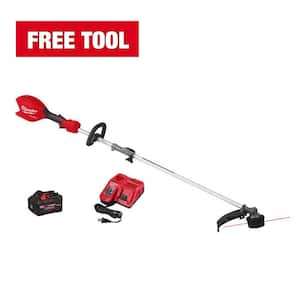
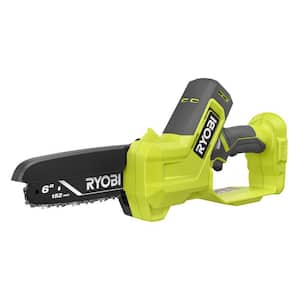
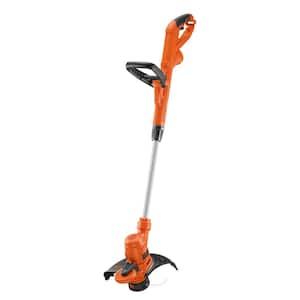
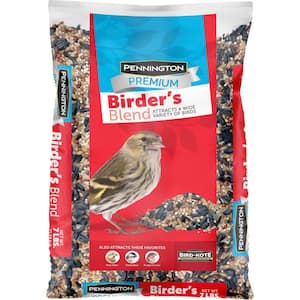
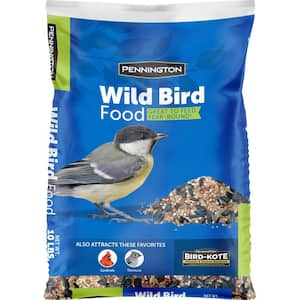
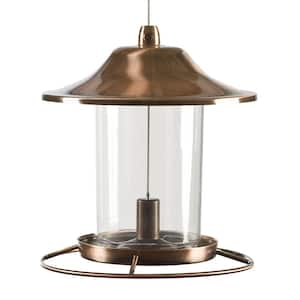
)
)
/17_514245_S_012_Product%20Image%20(square).jpg?im=Resize=(300,300))
;Resize=(300,300))
)
)
)
)
)
/2023_P2_Rain_Barrels_Product%20Image%20(square).jpg?im=Resize=(300,300))
)
;Resize=(300,300))
;Resize=(300,300))
;Resize=(300,300))
/12_SOIL_B_0420_Social%20media%20(square).jpg?im=Resize=(300,300))
;Resize=(300,300))
)
)
;Resize=(300,300))
;Resize=(300,300))
;Resize=(300,300))
;Resize=(300,300))
)
)
;Resize=(300,300))
;Resize=(300,300))
;Resize=(300,300))
;Resize=(300,300))
;Resize=(300,300))
)
/18Patio_Camden_Seagrass_5pcSeating_Planters_302468736_DTL3_L_Social%20media%20(square).jpg?im=Resize=(300,300))
;Resize=(300,300))
;Resize=(300,300))
;Resize=(300,300))
)
;Resize=(300,300))
;Resize=(300,300))
)
;Resize=(300,300))
)
.jpeg?im=Crop,rect=(363.69230769230774,1.2307692307692308,958.7692307692308,958.7692307692308);Resize=(300,300))
;Resize=(300,300))
)
;Resize=(300,300))
;Resize=(300,300))
)
;Resize=(300,300))
)
)
;Resize=(300,300))
;Resize=(300,300))
)
)
;Resize=(300,300))
)
;Resize=(300,300))
;Resize=(300,300))
)
)
;Resize=(300,300))
)
)
/Capello_Spring_Mum_10in_Social%20media%20(square).jpg?im=Resize=(300,300))
;Resize=(300,300))
)
)
;Resize=(300,300))
)
)
;Resize=(300,300))
)
)
;Resize=(300,300))
;Resize=(300,300))











































